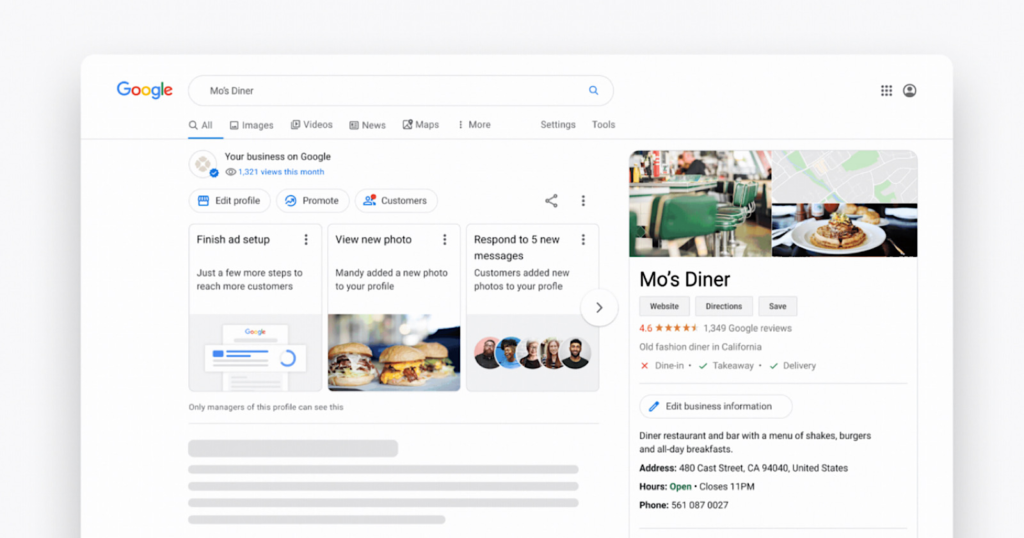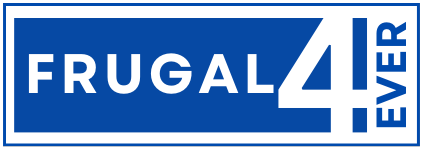When it comes to finding a new restaurant, looking for a trusted plumber, or even searching for a weekend getaway spot, most of us turn to a single source of truth: search engines. But did you know that nearly half of these searches are locally oriented? Yes, 46% of all Google searches are actively seeking local information. This brings us to the concept of Local SEO.
Local SEO, or Local Search Engine Optimization, is a strategic process emphasizing local brick-and-mortar businesses' optimization efforts. Unlike broader SEO strategies, Local SEO zeroes in on getting a business's name, address, and phone number (often referred to as NAP) correctly and consistently listed across the web, optimizing for nearby searches and ensuring potential customers can find relevant information easily.
The value of Local SEO becomes apparent when we understand its impact on business visibility. Consider this: if a significant chunk of searches is local, optimizing your business for these searches means you're making your business more visible to almost half the online searchers. And this isn't just about appearing on search results – it's about showing up on local maps, local directories, and anywhere else people might be looking for businesses like yours.

Let me share a personal story. I remember when I first moved to the city, I was in dire need of a good coffee place to fuel my mornings. Instead of wandering the streets aimlessly, I did what most of us would do – I took out my phone and Googled “best coffee shops near me.” The top results, accompanied by maps and reviews, were the ones I considered. The entire experience was seamless, and it led me to my now-favorite café. This made me realize the undeniable power of local search optimization. If my favorite café hadn't been optimized for local search, I might've never discovered it!
So, if you're a business owner, understanding and leveraging Local SEO isn't just beneficial – it's essential. As the digital landscape continues to evolve, making sure you're at the forefront of local searches is a game-changer in connecting with your community and growing your local customer base.
Understanding Local SEO and Its Importance
What is Local SEO?
Local SEO, short for Local Search Engine Optimization, is an essential digital marketing strategy for businesses aiming to reach consumers in specific geographic areas. It's about optimizing online presence to attract more business from relevant local searches conducted on search engines, especially Google. Whether you run a café, a bookstore, or a dental clinic, if you have a physical location, Local SEO is crucial for you.
How Does Local SEO Differ from General SEO?
While both Local and General SEO aim to improve a website's visibility in search engines, they cater to different types of searches. General SEO focuses on ranking in searches across the country or globally, targeting broader keywords. In contrast, Local SEO prioritizes appearing in search engine's local listings, such as Google Maps, targeting local-specific terms and customer reviews.
The Impact of Local SEO: By The Numbers
Did you know that businesses that harness the power of local search see rapid growth? A compelling statistic reveals that businesses that optimize for local search grow 50% faster than those that don't. It's not just about growth, though. It's about staying relevant, being at the forefront when customers search, and capitalizing on the intent to purchase or avail of a service locally.
Local SEO and the Customer Journey
From the moment a potential customer realizes they need a product or service to the point of transaction, Local SEO plays a pivotal role. Here's a brief breakdown:
- Discovery: A user searches for a product/service nearby. With effective Local SEO, your business pops up in the search results.
- Research: They explore reviews, ratings, and specifics about offerings. An optimized business profile will provide all this information seamlessly.
- Decision: Based on positive reviews, accurate information, and an appealing online presence, they choose your business.
- Transaction: They visit, purchase, or avail of your services, leading to profit and potential long-term customer relationships.
The more you invest in Local SEO, the smoother this journey becomes for your customers, enhancing their experience and your profitability.
Key Components of Local SEO
1. Google My Business (GMB) Listing

At the heart of Local SEO lies the Google My Business listing. It's a free tool by Google that allows businesses to manage their online presence across the search engine and its growing suite of utilities. An optimized GMB profile enhances your chances of appearing in Google's Local Pack, Local Finder, Google Maps, and organic rankings.
Setting Up and Optimizing GMB
- Sign in to Google My Business using a Google account associated with your business.
- Fill in every detail about your business, ensuring accuracy and completeness.
- Verify your business either via phone, email, or postcard.
- Once verified, add high-quality photos of your business, products, or services.
- Ensure the address is consistent with other listings and mention operational hours accurately.
- Regularly check for queries, reviews, or updates to keep the listing active and engaging.
2. Local Citations
Local citations are mentions of your business's NAP (Name, Address, and Phone Number) on other websites, like directories, apps, or social platforms. They play a crucial role in improving your local search visibility.
Why Citations Matter
Citations help search engines verify businesses' existence, legitimacy, and trustworthiness. The more consistent, high-quality citations a business has, the more likely it is to rank higher in local search results.
Top Directories to Consider
3. Local Reviews
In the realm of Local SEO, reviews are gold. They significantly influence consumer decisions and search rankings. An astonishing fact is that 88% of consumers trust online reviews as much as personal recommendations. This underscores the power of positive reviews in attracting new customers.
Strategies for Managing Reviews
- Actively encourage satisfied customers to leave reviews.
- Respond promptly and professionally to all reviews, positive or negative.
- Address negative feedback constructively and work on the feedback provided.
- Embed and showcased positive reviews on your website or social media.
4. On-page SEO for Local Businesses
Like general SEO, on-page factors for local businesses are crucial. It's about optimizing your website's content, meta tags, URL, and overall structure for your target local keywords.
Key Elements to Focus On:
- NAP Consistency: Ensure that your Name, Address, and Phone Number are consistent across your website and other listings.
- Local Content: Create content that resonates with local issues, events, or topics of interest. This boosts engagement and enhances local relevance.
Optimizing for Local Search
1. Keyword Research for Local SEO
While general SEO targets broader terms, local keyword research focuses on phrases that locals would use when searching for products or services in their vicinity. The key is to think from the perspective of a local customer.
How Local Keyword Research Differs
Local keyword research emphasizes geographic-specific terms, such as “coffee shop in Brooklyn” or “car repair in Miami.” It's not just about identifying popular terms but also pinpointing what locals specifically search for.
Tools & Methods for Finding Local Keywords
- Google Keyword Planner: Tailor your searches for local terms.
- SEMrush: Analyze local competitors and discover their top local keywords.
- Google Autocomplete: Start typing in Google and see its localized suggestions.
2. Local Link Building
Just like global SEO, backlinks remain a potent factor for local SEO. However, for local businesses, the emphasis is on acquiring links from trusted local websites, media outlets, and organizations.
Why Local Backlinks Matter
Local backlinks help search engines identify and trust your business as a genuine local entity. Such links, coming from local sources, solidify your position as a recognized figure in the local community.
Strategies for Gaining Local Links
- Engage in local community events or sponsorships, earning mentions and links.
- Collaborate with local influencers or bloggers for guest posts or features.
- Seek partnerships with local businesses for cross-promotion.
- List your business in reputable local directories.
3. Mobile Optimization
With the proliferation of smartphones, it's no surprise that mobile searches dominate. This trend is even more pronounced for local queries, as people often search for nearby businesses on the go. In fact, nearly 60% of all online searches are now conducted on a mobile device, with some sectors reaching up to 72%.
Tips for Mobile-Friendly Websites
- Ensure your website has a responsive design that adjusts to different screen sizes.
- Improve site speed. Slow loading times can deter mobile users.
- Use larger fonts and buttons to enhance mobile user experience.
- Test your website's mobile compatibility using tools like Google's Mobile-Friendly Test.
Optimizing for Maps Search
1. The Significance of Map Searches
Map searches have transformed the way people discover and navigate local businesses. Whether someone is looking for the nearest cafe or a trusted mechanic, map applications like Google Maps or Apple Maps provide instant, location-based results. Appearing prominently in these map searches can significantly drive foot traffic to physical stores, making it a pivotal aspect of local SEO.
2. Accuracy and Consistency in NAP Information
Your NAP (Name, Address, Phone Number) information is foundational to local search optimization, especially for maps. Consistency in NAP details across all platforms ensures that search engines trust the authenticity of your business, subsequently increasing your chances of ranking higher in map searches.
For instance, if your business is listed as “Jane's Cafe” on your website, ensure it's not “Jane Cafe” or “Jane's Coffee Shop” on other platforms or directories. Such discrepancies can confuse search algorithms and lead to missed opportunities in local map searches.
3. Boosting Visibility Through Check-ins and Reviews
Modern consumers love to share their experiences. Encouraging customers to check in or leave reviews on platforms like Google Maps or Yelp can greatly boost your business's visibility. Every check-in or review signals to search engines that your business is active and relevant, further enhancing your prominence in map-based searches.
Strategies to Encourage Reviews and Check-ins
- Provide in-store incentives for check-ins, such as discounts or freebies.
- Display signs or table tents prompting customers to leave a review.
- Engage with customer reviews — both positive and negative — to showcase your business's proactive approach.
4. Leveraging Location-Based Keywords
Using location-based keywords in your SEO strategy is pivotal for map search optimization. Targeting an “Italian restaurant” is not enough if your eatery is in Manhattan. A more effective keyword would be “Italian restaurant in Manhattan” or “best Italian pizza near Central Park.” These hyper-local keywords resonate more with local searchers and increase your chances of appearing in their map searches.
Tracking and Measuring Local SEO Efforts
1. Tools to Monitor Local Search Rankings
As with any marketing endeavor, the key to success in local SEO lies in consistent monitoring and optimization. A variety of tools offer insights into your local search performance, helping pinpoint areas of strength and potential improvement.
Recommended Tools
- Moz Local: A comprehensive tool offering local search performance metrics, actionable insights, and competitor analysis.
- BrightLocal focuses on local search rankings, reviews, and citation tracking.
- Ahrefs: While predominantly a global SEO tool, it offers features to track local keywords and backlinks effectively.
2. Key Performance Indicators (KPIs) for Local SEO
Understanding which metrics matter is essential to measuring the effectiveness of your local SEO strategies. These KPIs offer insights into your local visibility, engagement, and conversion rates.
Essential KPIs to Monitor
- Local Search Rankings: Monitor how your business ranks for targeted local keywords.
- Google My Business Insights: Analyze metrics like search queries, listing views, and customer actions.
- Local Citation Accuracy: Ensure consistent NAP information across all platforms and directories.
- Reviews & Ratings: Track the number, quality, and sentiment of online reviews for your business.
- Conversion Metrics: Monitor metrics like click-through rates from local listings or calls generated from map searches.
3. The Imperative of Continual Optimization
Local SEO is not a set-it-and-forget-it endeavor. The digital landscape is ever-evolving, and local search algorithms are no exception. Regularly updating your local SEO strategies ensures that you stay ahead of the competition and remain relevant to your local audience.
Moreover, staying updated with the latest local SEO trends and algorithm updates can offer a competitive edge. Whether leveraging new features in Google My Business, exploring emerging search platforms, or refining your local content strategy, continuous optimization is the key.
Conclusion
Local search optimization isn't just a digital marketing strategy—it's an essential tool for businesses aiming to make their mark in their communities. From ensuring accuracy in NAP information to the nuances of keyword research tailored to local audiences, optimizing for local search and maps can profoundly impact a business's visibility and growth.
Having observed the evolution of online marketing, I envision a future where local businesses aren't just surviving but thriving. Imagine walking down your local high street, with each store bustling with activity, all thanks to their strong online presence. As much as global enterprises have harnessed the power of the internet, there's an untapped potential for local businesses to flourish, all by being easily discoverable to those in their vicinity.
If you're reading this and contemplating the benefits of local SEO, I urge you to embark on this journey today. It's a transformative path that holds promise, ensuring your business remains at the forefront of your local community.
Additional Resources
For those eager to dive deeper into the realm of local SEO, here are some invaluable resources:










